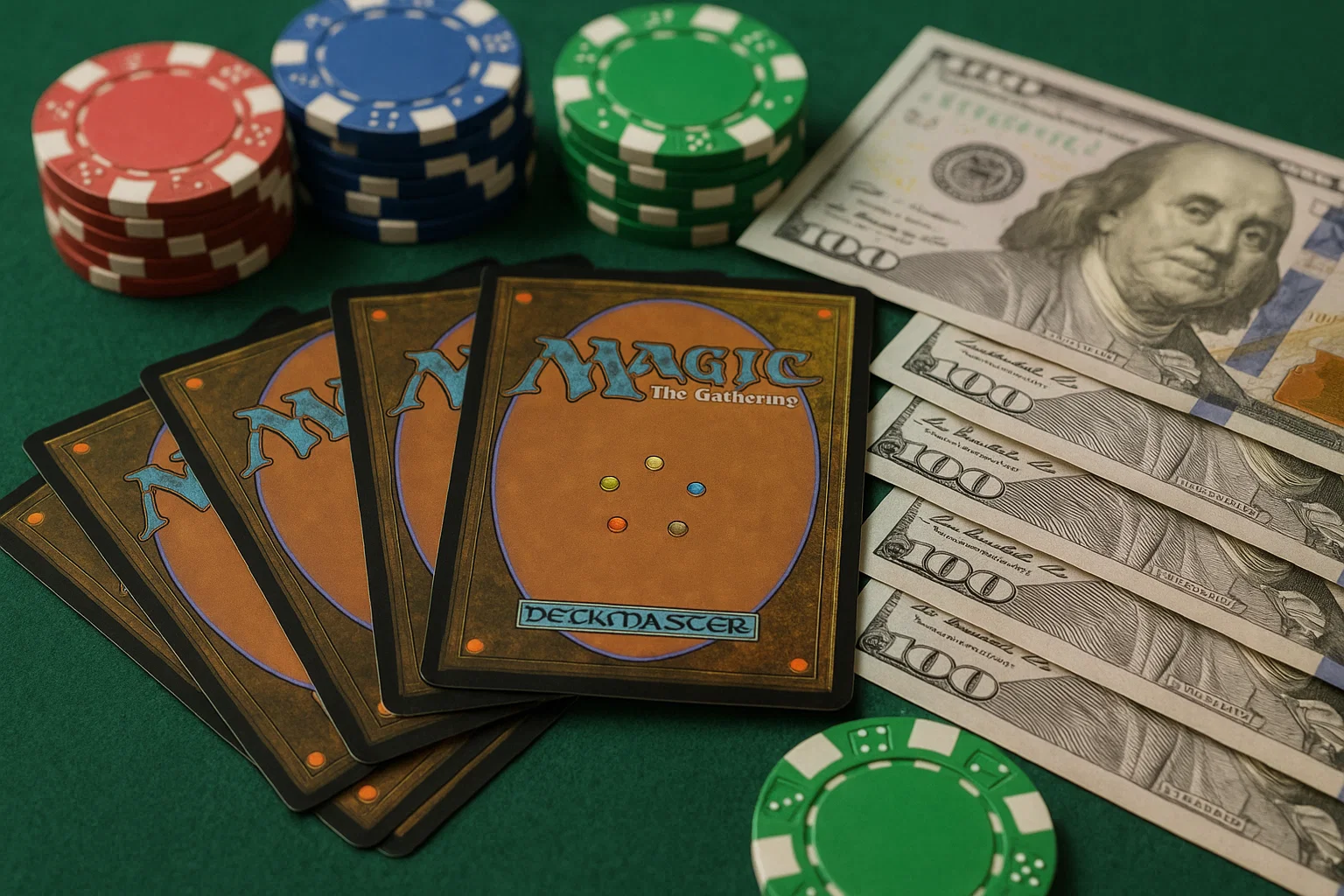Ever felt a strong game plan was derailed by a single bad draw? This moment often separates consistent winners from the rest of the field. It isn't just bad luck; it's variance, a concept that professionals in games of chance have mastered for decades. This guide is for competitive and aspiring Magic: The Gathering players who want to level up their strategic thinking beyond deckbuilding. By applying core principles of odds and bankroll management, you can improve tournament performance, manage your collection budget, and develop mental resilience against setbacks.
A core concept separating recreational players from seasoned grinders is making decisions that yield the most value over time. This principle is borrowed from professional gaming, where understanding probability is paramount.
What is Expected Value (EV)?
Expected Value (EV) represents the average outcome of a decision if it were repeated hundreds of times. While any single outcome is unpredictable, skilled players consistently make positive EV decisions, trusting that mathematics will favor them in the long run. In Magic, every play carries an EV. For example, casting a board wipe when you are far behind against an opponent with a full board is a high EV play, as it drastically increases your probability of winning. Casting that same spell when you are ahead on the board is a negative EV play. To grasp how probability works across many outcomes, observing systems built on these principles can be insightful. Many social gaming platforms, such as Jumbo88, are designed entirely around chance and probability, demonstrating how variance functions on a large scale.
Building Your MTG Bankroll: Playing the Long Game
Consistent tournament play requires a budget. Adopting a structured approach to your finances, known as MTG bankroll management, ensures a string of unfavorable results doesn't force you out of the game. This is a crucial discipline for any serious player aiming for long-term participation.
Defining Your 'Bankroll' in Magic
A bankroll is not just for professionals; it is a dedicated budget for your hobby, kept entirely separate from essential life finances like rent or groceries. This fund should cover all Magic-related expenses: tournament entry fees, card purchases, and travel costs. For instance, a monthly budget of $100 could be allocated as $40 for four local tournament entries and $60 for acquiring new cards. This division ensures consistent practice through events while also allowing for steady improvement of your collection.
Applying the 'Unit' System to Tournament Entry
Professionals in games of chance often use a 'unit' system, where a single wager is a small, fixed percentage (typically 1-2%) of their total bankroll. This risk management strategy translates effectively to Magic. Here, your 'unit' is the cost of a single tournament entry. This system protects your funds from a few unfortunate events. If your total MTG bankroll is $500, you might define your unit as $10 (2%). This discipline means you would focus on events with a $10 entry fee, preventing a single loss at a larger $50 event from dealing a devastating blow to your budget.
Mastering Variance and the Mental Game
The final piece of the professional mindset is learning to accept and manage variance. Luck is an inherent part of any game involving a shuffled deck, and how you react to it defines your ceiling as a competitor.
Accepting Mana Screw as Statistical Noise
Getting 'mana screwed' or 'flooded' can feel personal, but it is simply statistical noise—an expected part of the game over a large sample size. A professional poker player does not quit after losing one hand with a strong starting position; they know they made the correct play and that, over time, the decision will be profitable. In Magic, deck construction—particularly your mana curve and land count—is your primary tool for minimizing this variance, though it can never be fully eliminated. Adopting this mindset will not prevent unfavorable draws, but it will help ensure you remain financially and mentally prepared to compete in the next event.
